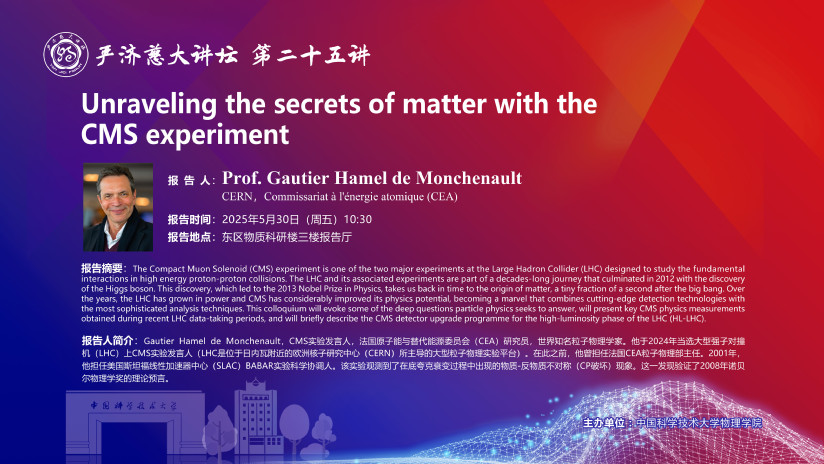报告题目:《Unraveling the secrets of matter with the CMS experiment》
报 告 人: Prof. Gautier Hamel de Monchenault
报告时间:2025年5月30日10:30
报告地点:科大东区物质科研楼三楼报告厅
报告摘要:The Compact Muon Solenoid (CMS) experiment is one of the two major experiments at the Large Hadron Collider (LHC) designed to study the fundamental interactions in high energy proton-proton collisions. The LHC and its associated experiments are part of a decades-long journey that culminated in 2012 with the discovery of the Higgs boson. This discovery, which led to the 2013 Nobel Prize in Physics, takes us back in time to the origin of matter, a tiny fraction of a second after the big bang. Over the years, the LHC has grown in power and CMS has considerably improved its physics potential, becoming a marvel that combines cutting-edge detection technologies with the most sophisticated analysis techniques. This colloquium will evoke some of the deep questions particle physics seeks to answer, will present key CMS physics measurements obtained during recent LHC data-taking periods, and will briefly describe the CMS detector upgrade programme for the high-luminosity phase of the LHC (HL-LHC).
